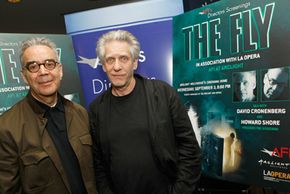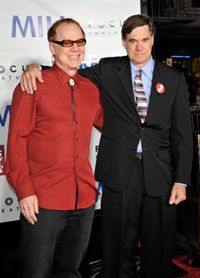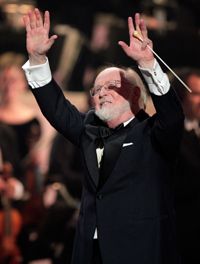If you're thinking of becoming a film composer, you probably love movies and are a talented musician who enjoys composing. And based on responses of 12 film composers to a Variety magazine question, you've probably felt that way for a long time. Most film music composers describe themselves as writing music and being inspired by a movie before they reached high school [source: Variety].
But, as you may suspect, there's no specific way to become a movie composer. Well-known, award-winning movie music composers have taken different paths in building their careers. For example:
- John Williams is a five-time Oscar winner for best original score and composer for more than 100 movies, including the "Star Wars," "Indiana Jones" and "Harry Potter" series. He studied piano at Juillard and then played in New York clubs as a jazz pianist. He started in films by working with Bernard Herrmann and other film composers.
- Howard Shore has won Oscars for the original scores of two "Lord of the Rings" movies. He graduated from Berklee College of Music, played in the jazz group Lighthouse and then became musical director for "Saturday Night Live." His work in film began with a collaboration with director David Cronenburg that has continued through 12 films.
- Danny Elfman is a self-taught musician who led the rock group Oingo Boingo. He has scored most of director Tim Burton's movies and many others, including "Batman Returns" (1992) and the "Spider-Man" and "Men in Black" series.
If you plan to follow their examples, here are a few tips that may help you with a career as a film composer:
Get a degree in music or a related entertainment field. Going to a school with a film program, like University of Southern California or New York University, or a music school that offers a film scoring major, like Berklee, can help you learn about the film industry and the technical aspects of composing -- and help you connect with student directors for immediate film projects and future contacts.
Work on different types of films. The rare film composer starts on feature films. You'll probably start with commercials, student films, trailers and other smaller projects. Varied types of films and varied musical styles make for a broader portfolio to appeal to directors and producers.
Make connections with directors and others in the film industry who may be able to offer you work or know someone who can. Building relationships with directors is particularly important because they often will collaborate with a single composer for many of their films.
Build a strong portfolio that demonstrates what you can do. Directors and producers are unlikely to listen to more than 20 minutes of sample work, so you may want to create themed demo CDs of your work. You'll be able to send different ones, depending on the type of music that is wanted. But remember that directors and producers are more likely to be interested in your film credits than your music.
Go where the jobs are. Although the Internet makes long-distance work relationships possible, most film composers need to be in the same location as the directors and editors they work with. Most of the jobs are in southern California or New York.
Finally, be persistent if this is the career you want. With talent, education, contacts and some luck, you could wind up composing one of those movie themes that lingers long after the closing credits fade.
For lots more information about film composers and related topics, see the links on the next page.



